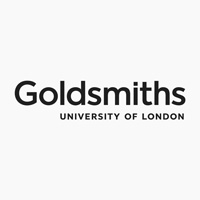fees waived
Economics, BSc (Hons)
Goldsmiths, University of London, United Kingdom
Ranking in UK
Economics
Economics
Economics
Costs
food & rent S$24.8k / year
Entry requirements
Scholarships
Limited quantity
Information
Code
Intakes
Website (External)
Programmes
Information
Duration
2029
This BSc Economics degree provides rigorous and relevant training in economic theory, history, modelling, coding, statistics, and econometrics, with practical real-world applications. At Goldsmiths, students receive comprehensive quantitative training and a deep understanding of economic contexts, enabling effective use of data and techniques for empirical problems. The program explores diverse applications in economics and social sciences, offers access to London's financial experts, and opens career paths in consultancy, finance, data analysis, and government. Small group learning with personal tutors and opportunities for international exchange via the UK Turing Scheme enhance the experience.The curriculum includes compulsory modules across three years: introductory economics and mathematics in year one; intermediate microeconomics, macroeconomics, and quantitative methods in year two; and advanced topics like international economics, econometrics, and public economics in year three. Students select optional modules from areas such as accounting or development economics. Assessment involves coursework, examinations, group work, and projects, tailored to module choices.
Year 1(credit level 4) In your first year you'll take the following compulsory modules. Introductory Economics Economic Reasoning Interdisciplinary Perspectives on the Economy Mathematics for Economics and Business Identity, Agency & Environment 1 Identity, Agency & Environment 2 Year 2 (credit level 5) In your second year, you'll take the following compulsory modules. Intermediate Microeconomics Intermediate Macroeconomics Quantitative Economics Applied Quantitative Economics History of Economic Ideas Economic History My Career Strategy or Goldsmiths’ Social Change Module In addition, you'll choose another optional module from the Institute of Management Studies or other relevant options in other departments. Choices include: Accounting and Finance, Development Economics, Money, Banking and the Financial System, Entrepreneurial Behaviour, and many more. Year 3 (credit level 6) In your third year, you'll take the following compulsory modules International Economics Public Economics Econometrics Advanced Econometrics Communications and Presentation Skills Individual and Institutional Economic Behaviour Optional modules: You will also choose optional modules to the total of 30 credits (1 or 2), selected from a list provided by the Institute of Management Studies. Please note that due to staff research commitments not all of these modules may be available every year.
A local representative of Goldsmiths, University of London in Singapore is available online to assist you with enquiries about this course.

